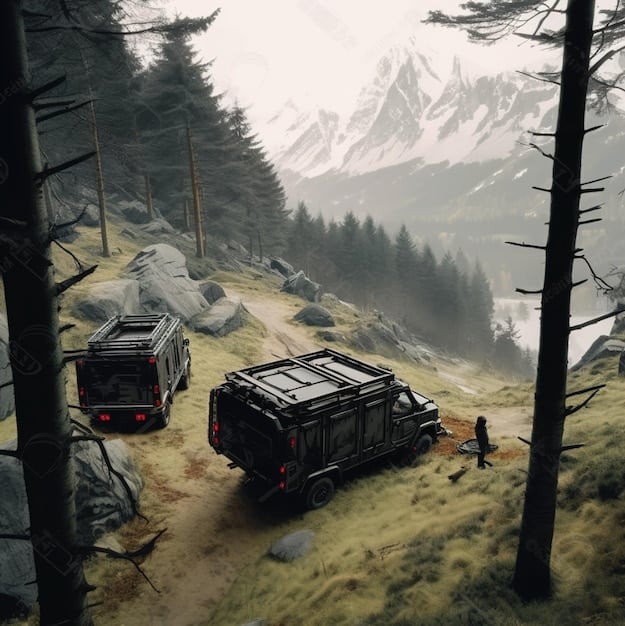PC Gaming Mods Under Attack? Latest Copyright Concerns Explained

PC gaming mods are facing increased scrutiny due to copyright concerns, raising questions about the legality and future of community-created content.
Are PC gaming mods under attack? Copyright concerns are escalating, threatening the vibrant modding community. Let’s dive into the latest developments impacting your favorite games.
Understanding PC Gaming Mods
PC gaming mods have been a cornerstone of the gaming community for decades, offering players the chance to customize and enhance their favorite games. These modifications, or “mods,” can range from simple texture replacements to complete overhauls that introduce new gameplay mechanics, characters, and storylines.
Mods not only extend the lifespan of games but also allow players to express their creativity and contribute to a shared gaming experience. However, the legal landscape surrounding mods is complex, and recent copyright concerns have cast a shadow over the future of this beloved practice.

The Allure of PC Gaming Mods
The popularity of PC gaming mods stems from their ability to personalize the gaming experience. Here are some key reasons why players embrace mods:
- Enhanced Gameplay: Mods can introduce new features, challenges, and storylines, offering fresh perspectives on familiar games.
- Visual Upgrades: High-resolution texture packs and graphical enhancements can breathe new life into older titles.
- Community Creation: Mods foster a sense of community, with players sharing their creations and collaborating on projects.
- Extended Lifespan: Mods can significantly extend the lifespan of games by providing ongoing content and updates long after the official developers have moved on.
The creation and distribution of mods are typically driven by passionate gamers who dedicate their time and skills to improving the games they love. This collaborative ecosystem has contributed significantly to the richness and diversity of the PC gaming landscape.
Copyright Law and PC Game Modifications
Copyright law plays a crucial role in the legality of PC game modifications. Understanding the basics of copyright is essential for both mod creators and game developers.
Copyright protects the original expression of an idea, such as the code, artwork, music, and other creative elements of a video game. Modifying a game can potentially infringe on these rights if the mod incorporates copyrighted material without permission.
Fair Use and Transformative Works
The concept of “fair use” allows for limited use of copyrighted material without permission for purposes such as criticism, commentary, news reporting, teaching, scholarship, or research. Whether a mod qualifies as fair use often depends on whether it is “transformative,” meaning it adds new expression, meaning, or message to the original work.
Courts consider several factors when determining fair use, including the purpose and character of the use, the nature of the copyrighted work, the amount and substantiality of the portion used, and the effect of the use upon the potential market for or value of the copyrighted work.
In general, mods that are purely commercial or that directly compete with the original game are less likely to be considered fair use. Mods that are non-commercial, transformative, and do not significantly harm the market for the original game have a stronger argument for fair use protection.
Recent Copyright Concerns
Recent years have seen an increase in copyright concerns related to PC gaming mods. Game developers and publishers are becoming more vigilant in protecting their intellectual property, leading to cease and desist letters, takedown requests, and other legal actions against mod creators.
One of the primary drivers of these concerns is the monetization of mods. As modding has become more sophisticated, some creators have begun to sell their mods or offer them as part of subscription services. This commercialization raises questions about whether such mods are still protected under fair use principles.

Takedown Requests and Legal Disputes
Game developers often issue takedown requests to platforms like Nexus Mods or Steam Workshop, demanding the removal of mods that allegedly infringe on their copyrights. These requests can be based on various grounds, such as the use of copyrighted assets, the circumvention of DRM (digital rights management) measures, or the violation of terms of service agreements.
Legal disputes over mods are relatively rare, but they can have a chilling effect on the modding community. Mod creators may be hesitant to invest significant time and resources into projects if they fear legal repercussions. This can stifle creativity and innovation within the community.
- Monetization: Commercial mods are under greater scrutiny.
- Asset Usage: Use of copyrighted assets without permission is a common issue.
- DRM Circumvention: Mods that bypass DRM measures can face legal challenges.
The line between fair use and copyright infringement can be blurry, and the interpretation of these laws often depends on the specific facts and circumstances of each case. This uncertainty creates challenges for both mod creators and game developers.
Developer’s Perspective on Game Mods
Game developers have varying perspectives on PC gaming mods. Some developers embrace mods as a valuable tool for community engagement and game enhancement, while others view them as a potential threat to their intellectual property and revenue streams.
Many developers recognize that mods can extend the lifespan of their games and attract new players. These developers often provide official modding tools and support to encourage community creativity.
Supporting Modding Communities
Developers who support modding communities often provide software development kits (SDKs) and other resources to facilitate the creation and distribution of mods. They may also integrate modding tools directly into their games, making it easier for players to create and share their modifications.
Some developers even hire modders to work on official game content, recognizing the talent and expertise within the modding community. This collaboration can lead to innovative new features and content that enhance the overall gaming experience.
However, not all developers are equally supportive of modding. Some developers worry that mods can undermine their ability to sell downloadable content (DLC) or sequels, while others are concerned about the potential for mods to introduce bugs, exploits, or offensive content into their games.
- Official Modding Tools: Providing SDKs and other resources.
- Integration: Incorporating modding tools directly into games.
- Collaboration: Hiring modders to work on official content.
- Concerns: Potential impact on DLC sales and game integrity.
The developer’s perspective on game mods can significantly impact the legal and practical landscape of modding. Developers who are supportive of modding are more likely to work with the community to address copyright concerns and ensure that mods are created and distributed in a responsible manner.
Navigating the Legal Gray Areas
Navigating the legal gray areas surrounding PC gaming mods requires a careful understanding of copyright law, fair use principles, and the terms of service agreements of the games being modified.
Mod creators should be aware of the potential risks involved in creating and distributing mods and take steps to minimize those risks. This includes obtaining permission from copyright holders before using copyrighted material, avoiding the commercialization of mods, and respecting the terms of service agreements of the games being modified.
Best Practices for Mod Creators
Mod creators should follow best practices to ensure that their mods are legally compliant and respectful of the rights of game developers and publishers. These practices include:
• Conducting thorough research to determine the copyright status of any assets used in the mod.
• Obtaining permission from copyright holders before using copyrighted material.
• Creating original content whenever possible.
• Avoiding the commercialization of mods without express permission from the copyright holder.
• Respecting the terms of service agreements of the games being modified.
- Research: Understand the copyright status of assets.
- Permission: Obtain consent from copyright holders.
- Original Content: Create original assets whenever possible.
Game developers and publishers also have a role to play in navigating the legal gray areas surrounding mods. They should clearly communicate their policies on modding and work with the community to address copyright concerns in a fair and transparent manner.
The Future of PC Gaming Mods
The future of PC gaming mods is uncertain, but it is likely to be shaped by ongoing legal battles, technological advancements, and the evolving relationship between game developers and modding communities.
One potential scenario is that game developers will increasingly embrace modding by providing official support and tools, while also enforcing stricter rules regarding copyright and commercialization. This could lead to a more regulated but also more vibrant modding ecosystem.
Potential Scenarios and Trends
Another potential scenario is that legal challenges will continue to escalate, leading to a decline in the quantity and quality of mods. This could stifle creativity and innovation within the modding community and reduce the appeal of PC gaming.
Technological advancements, such as artificial intelligence (AI) and procedural generation, could also impact the future of modding. AI could be used to automate the creation of mods, making it easier for players to customize their games. Procedural generation could be used to create vast and varied game worlds that are easily modifiable.
- Increased Regulation: Stricter rules regarding copyright and commercialization.
- Legal Challenges: Escalating legal battles and a decline in modding activity.
- Technological Advancements: AI and procedural generation transforming mod creation.
Ultimately, the future of PC gaming mods will depend on the choices made by game developers, mod creators, and the legal system. A collaborative approach that balances the rights of copyright holders with the interests of the community is essential for ensuring the long-term viability of modding.
| Key Point | Brief Description |
|---|---|
| 🛡️ Copyright Law | Protects original game assets; modifying requires understanding of fair use. |
| ⚠️ Recent Concerns | Increasing takedown requests due to monetization and asset usage issues. |
| 🤝 Developer Views | Vary from full support with SDKs to concerns about DLC sales. |
| 🔮 Future Trends | AI could automate mod creation, but legal issues remain a concern. |
FAQ: Copyright Concerns and PC Gaming Mods
▼
Copyright infringement occurs when a mod uses copyrighted assets (art, code, music) without permission. This includes using original game files or assets from other games without proper licensing.
▼
Fair use allows limited use of copyrighted material for transformative purposes, like commentary or criticism. Mods that add new content and don’t directly compete with the original game may qualify.
▼
Developers issue takedown requests to protect their intellectual property, prevent unauthorized use of their assets, and address mods that bypass DRM or violate terms of service.
▼
Mod creators should obtain permission for copyrighted assets, create original content, avoid commercializing mods without permission, and respect the terms of service of the game.
▼
The future may involve increased regulation, developer collaboration, and the use of AI for mod creation. Balancing copyright with community interests will be crucial for the modding scene.
Conclusion
The evolving landscape surrounding PC gaming mods and copyright law presents both challenges and opportunities. As legal and technological landscapes shift, a balanced approach that respects developers’ rights while fostering creative community innovation is essential.





